|
AAHB 2021 Virtual Scientific Meeting |
 Elbert D. Glover, PhD, FASHA, FAAHB, FRIPH
Elbert D. Glover, PhD, FASHA, FAAHB, FRIPH
Editor, American Journal of Health Behavior
Editor, Tobacco Regulatory Science
Dr. Glover retired from academia and is currently Professor Emeritus and former Chair in Behavioral and Community Health at the University of Maryland School of Public Health and former founding Director of the Center for Health Behavior Research. Over the past 30+ years, he served as a chair and/or professor at two Big 10 Universities and five Big 12 Universities. He possess in excess of 200 refereed research publications with several hundred professional presentations and medical grand rounds.; moreover, he was funded for approximately 45 million dollars in external funds. He is co-owner with his wife Penny, of the American Journal of Health Behavior and Tobacco Regulatory Science where he serves as Editor in Chief to both journals.
After carrying a vision for nearly 2 decades, Dr Glover acted on the vision of bringing researchers together into one organization; consequently, in April 1, 1997 founded the American Academy of Health Behavior. As founder of The Academy, he was awarded the first Lifetime Achievement Award by The Academy. Moreover, in 2008 received the coveted American Academy of Health Behavior Research Laureate Medallion for his contribution to health behavior research.
His work previously appeared in such noted publications as the New England Journal of Medicine, Journal of the American Medical Association, American Journal of Public Health, Archives of Otolaryngology, Addictive Behaviors, International Journal of Addictions, Journal of the American Dental Association, Modern Medicine, Journal of Family Practice, Addictions, American Journal of Health Behavior, Preventive Medicine, British Journal of Psychiatry, Nicotine & Tobacco Research, Chest, World Journal of Biological Psychiatry, Journal of Electroconvulsive Therapy, and American Journal of Medical Sciences to name a few.
Dr Glover has appeared on many television programs; People, PM Magazine, 20/20, Charlie Rose Show, Town Meeting, Good Morning America, Week Days, C-Span, Health Talk America, Christian Broadcasting Network (CBN), Sunday Magazine, CBS Morning News, D.O.C. (Doctors on Call), Televisa (Mexico City), Medical Discoveries (WCNC- Charlotte), MD TV (San Juan, Puerto Rico), Dateline, Peter Jennings Evening News World Report, CBS News, German Television, Australian Broadcasting Corporation, Daybreak Cayman Islands, and numerous other television programs.
Moreover, he has appeared on hundreds of radio programs throughout the North America & Europe, among these are “Sunday Rounds” on National Public Radio, “Radio Broadcast News” on ABC News, “Public Affairs Radio” in Canada, Off-Duty America on Dr. Derek DeSilva’s “Ask the Doctor” on National Public Radio, “Radio Programas” de Mexico, “New Broadcast Network,” “World Wide Live,” “CBS National Radio,” & “Washington Post Radio.”
Title: Meeting of the Minds - New Directions for Health Behavior Research
Panel Discussion
- Lawrence Green, DrPH, ScD (Hon), FAAHB - AAHB Lifetime Achievement Award, Research Laureate, Professor Emeritus, UCSF
- Marcia Ory, PhD, MPH, FAAHB - AAHB Research Laureate, Texas A & M, School of Public Health, Department of Health Promotion and Community Health Sciences
- Steven Sussman, PhD, FAAHB - AAHB Research Laureate, University of Southern California
Objectives:
- Discuss the implications related to research presented for theory and applications of multiple health behavior change.
- Explore important questions yet to be answered regarding the research presented.
- Identify future directions in heath behavior research in academia and beyond.
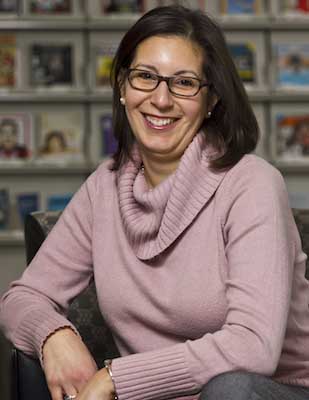 Jennifer Manganello, Ph.D., M.P.H.
Jennifer Manganello, Ph.D., M.P.H.
Professor, University at Albany School of Public Health
Department of Health Policy, Management and Behavior
I am a Professor at the University at Albany School of Public Health. I am a health communication scholar who uses theories, concepts, and methods from the fields of public health and communication. My research focuses on health literacy as well as the effects of media on attitudes, behaviors, and policies that put young people (children, adolescents, young adults) at risk for negative health outcomes.
My main area of expertise is health communication. My work in this area has primarily focused on the effects of media and/or technology use on health attitudes, knowledge, and behavior, health information seeking among youth and parents, and identifying best practices for the dissemination of health information to the general public, including through news and social media. It has also involved a focus on health literacy. Much of my work focuses on children, adolescents, young adults and parents, and I often seek to include groups impacted by health disparities. I also examine the use of digital technology for health information and health interventions, also known as eHealth.
I have published my work in journals such as the Journal of Health Communication, Pediatrics, Public Health Management and Practice, Journal of Children and Media, and Public Health Nutrition.
Before starting at UAlbany, I was a Post-Doctoral Research Fellow at the Annenberg Public Policy Center, University of Pennsylvania. I earned my Ph.D. from the Department of Health Policy and Management at the Johns Hopkins Bloomberg School of Public Health.
Title: Promoting Health Behavior Research in the Current Media Landscape: A Tale of Missed Opportunities
Objectives:
- Identify different media channels (including social media networks) for distributing health information as well as typical users of those channels.
- Develop an understanding of content analysis methods to evaluate content of messages appearing in different media channels.
- Give examples of how and why to use different media channels to distribute health information.
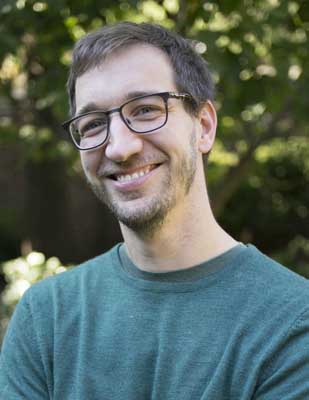 Philip Massey, PhD, MPH
Philip Massey, PhD, MPH
Department of Community Health and Prevention
Drexel Dornsife School of Public Health
Dr. Massey is an Associate Professor in the Department of Community Health and Prevention at the Drexel Dornsife School of Public Health in Philadelphia, PA. He earned his PhD and MPH from the UCLA Fielding School of Public Health. His research draws from principles in public health and health communication and uses online data and social media strategies for surveillance, intervention, and evaluation in cancer prevention, substance use, and global health. His current NCI-funded R01 study tests a population-level social media intervention to increase HPV vaccine uptake through an innovative narrative-focused intervention. The intervention is designed to communicate evidence and information about the HPV vaccine to parents who use social media as a health information source. He has also examined patterns and shifts in public opinion toward HPV vaccination and vaping on Twitter and Instagram, focusing on what types of messages are shared and how this is related to reach and impact, to inform policy and intervention. This work has led to state-supported partnerships with the Pennsylvania Department of Drug and Alcohol Programs, where he has developed resources for policymakers, parents, and educators on the potential exposure to vaping products through social media platforms including Instagram. Finally, he is co-leading a Gates-funded online evaluation of a serial drama about health in West Africa that produces and shares content on various social media platforms including YouTube, Facebook, and Instagram. Using a mixed methods approach, this evaluation study examines publicly available online data in addition to longitudinal data from an online cohort in West Africa recruited through social media.
Title: Harnessing social media data and narratives for health behavior research: surveillance, intervention, and evaluation
Objectives:
- Identify methods for social media data collection in health behavior research.
- Describe patterns of user engagement based on social media health content.
- Characterize domains of narrative in health behavior research on social media.
 Ruth Milligan
Ruth Milligan
Articulation
Founder, Managing Partner & Executive Coach
As an executive speech coach and trainer, I live at the intersection where professionals from science, research, medicine, and data and analytics come to make their messages more engaging, compelling, and impactful. Helping leaders from these diverse fields meet their goals marks the culmination of my nearly 30 years practicing some form of communications.
I founded Articulation in early 2010 after hosting one of the first TEDx events — TEDxColumbus — which is also one of the longest-running TEDx programs in the world. Since then my team and I have coached over 750 people in TEDx or TED-style talks and trained thousands through my company’s classes on message method, storytelling, public speaking, executive presence and accessing science.
My professional passion is to help organizations of all sizes create storytelling cultures that elevate the opportunities for associates and executives to practice and deliver great presentations. I believe that a great talk can come from a nervous, reluctant or beginning speaker, given the right feedback and development environment.
After ten years of curating, organizing and hosting TEDx events, I’ve also become a seasoned host, emcee and consultant to a wide range of events — everything from major donor events at universities to pitch events inside data and analytics teams. When my team and I are engaged to help with speakers, we also advocate for the best conditions that help make a speaker, and in turn, an event, successful.
I began my career as a speechwriter in politics after receiving a degree in Speech Communication from Miami University. I enjoyed a few years as a major gifts officer at United Way, learning how communication influences development and fundraising, but then returned to my roots to help launch a PR practice within a larger marketing agency. When that agency closed in 2001, I began my own marketing and communications practice, Milligan Communications, which I ran until 2009 before pivoting into a deep focus on training and coaching with my many clients at Articulation.
My current client list includes but is not limited to Ford, United Health Care, Nationwide, Alliance Data, Huntington, DSW, Chemical Abstracts, White Castle, Ohio State University, and several health care systems. I spend the majority of my time coaching executives one-on-one and facilitating training for small groups.
I’m a passionate supporter of causes that elevate women and girls. For two years I served as chapter chair for the Women President’s Organization Columbus Chapter and as a core team member of the Women in Analytics conference. Articulation’s philanthropy is devoted exclusively to helping women and girls elevate their voices and stories. I’ve also served on the board of the YWCA and the Girls Scouts of Central Ohio (Heartland). Closer to my own home, I’m personally involved in bringing a community pool back to my neighborhood of Clintonville, where I live with my husband and my two expectedly busy teenagers.
Title: Making Your Science Accessible
Objectives:
- Designing a specific outcome for your communication
- Understand the four pillars that provide a foundation for "making science accessible" when communicating to a lay audience:
-
- Building Context
- Laddering Complexity
- Using Story & Metaphor
- Envisioning what's possible (vision/future)
- Practice these pillars through small group exercises
- Understand how to speak to mixed audiences
|
2020 Judy K. Black Early Career Research Award |
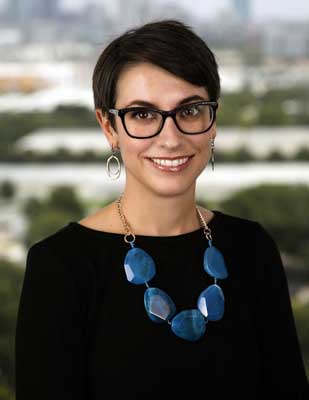 Erika L. Thompson, PhD, MPH
Erika L. Thompson, PhD, MPH
Department of Health Behavior and Health Systems in the School of Public Health
University of North Texas Health Science Center
Erika Thompson is an Assistant Professor in the Department of Health Behavior and Health Systems in the School of Public Health at the University of North Texas Health Science Center in Fort Worth, Texas. She received her Bachelor degree in Health Science (2006-2010) and Master of Public Health in Epidemiology (2010-2011) from the University of Florida. She then earned her PhD from the University of South Florida in Public Health (2011-2015), and subsequently completed a 2-year postdoctoral fellowship there (2016-2017).
Dr. Thompson has published over 60 peer-reviewed publications, and has published in high-impact journals such as, American Journal of Public Health, JAMA Pediatrics, Preventive Medicine, American Journal of Preventive Medicine, and Women’s Health Issues. She has received grant funding from the Office on Women’s Health, National Institutes of Health, and several community-based organizations.
Her research is focused on two primary areas: human papillomavirus (HPV) prevention and community-engaged women and children’s health. Specifically, Dr. Thompson is interested in understanding the social, community, and policy factors impacting HPV vaccination uptake, as well as changes in HPV prevention guidelines and how these guidelines are implemented into practice. Moreover, Dr. Thompson’s community-engaged research has included projects related to the social determinants of health, such as housing instability, early childhood education, victimization, and access to healthcare. She currently is leading a pilot project from NIMHD to explore preferences for and access to contraception among women experiencing homelessness.
Title: Cognitions and behaviors related to risk for alcohol-exposed pregnancies among young adult women
Objectives:
- Participants will be able to identify the characteristics of alcohol exposed pregnancies.
- Participants will be able identify the ways to decrease exposure to alcohol during pregnancy in young women.
2020 Research Laureate |
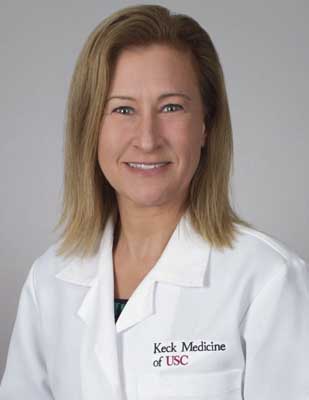 Jennifer B. Unger, PhD
Jennifer B. Unger, PhD
Keck School of Medicine
University of Southern California
Jennifer B. Unger, Ph.D. is a Professor of Preventive Medicine at the University of Southern California Keck School of Medicine. Her research focuses on the psychological, social, and cultural influences on health-risk and health-protective behaviors including tobacco and cannabis use. She and her colleagues have conducted several longitudinal studies of acculturation and substance use among Hispanic adolescents, highlighting the role of discrimination in health-risk behaviors.
Her research also has examined cultural influences on tobacco use among American Indian adolescents, Chinese adolescents, and African American adults. She is currently conducting a study of the association between proximity to cannabis retailers and cannabis use among adolescents. She is interested in entertainment-education strategies for health education among low-literacy minority populations and has collaborated on the design and evaluation of fotonovelas and telenovelas about secondhand smoke exposure in multiunit housing; diabetes; asthma; immunization; and kidney transplantation.
She is a co-investigator in the USC Tobacco Center of Regulatory Science (TCORS), where she studies diffusion of messages about emerging tobacco products to vulnerable populations through social media. Dr. Unger directs the Ph.D. program in Preventive Medicine / Health Behavior Research. She is an Associate Editor for Substance Use and Misuse and Tobacco Regulatory Science.
Title: Cultural risk and protective factors for substance use among Hispanic adolescents and young adults in Southern California
Objectives:
- Understand the concept of acculturation and its influence on adolescent development.
- Identify cultural risk and protective factors among adolescents and young adults.
- Describe the associations between cultural factors and substance use.
Transforming Talks - TEDx Inspired Speakers
|
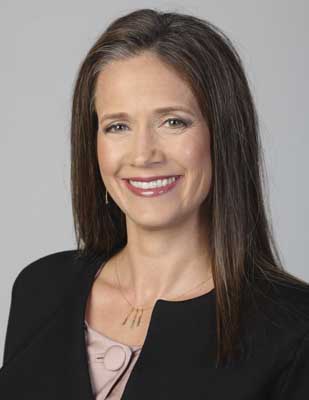 M. Renée Umstattd Meyer, PhD, MCHES, FAAHB
M. Renée Umstattd Meyer, PhD, MCHES, FAAHB
Baylor University
Dr. Renée Umstattd Meyer is the Associate Dean for Research in the Robbins College of Health and Human Sciences and a Professor of Public Health at Baylor University in Waco, Texas. She works with communities using mixed methods to understand cultural context and advance health equity through approaches and policies to foster healthy and active opportunities and lifestyles for ALL people. She focuses much of her work partnering with underserved rural communities and families. Renée co-leads the Rural Active Living Work Group of the CDC-funded Physical Activity and Policy Research and Evaluation Network (PAPREN) and serves on the Physical Activity Alliance Equity, Diversity, and Inclusion Committee and the Voices for Healthy Kids Strategic Advisory Committee. She also recently led the RWJF-funded Physical Activity Research Center (PARC) which supported the project and development of the Rural Play Streets Guide and the Activating Rural America Voices for Healthy Kids Innovation, Equity, and Exploration special project work group; the physical activity portion of a 5-year USDA-funded project (Familias Saludables) aimed at increasing physical activity and healthy eating behaviors of Mexican-origin children and families residing along the Texas-Mexico border; and a CDC-funded project that provided guidance to the CDC regarding surveillance approaches for policy, systems, and environmental factors related with active living, healthy eating, and breastfeeding for rural communities.
Professional Development and Mentoring Council Workshop Speakers
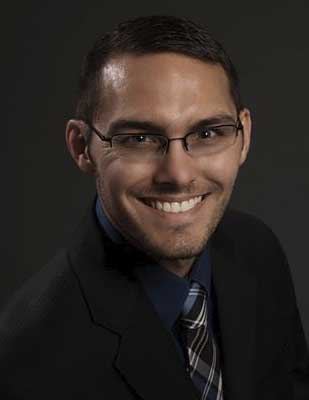 Matthew E. Rossheim, PhD, MPH, CPH
Matthew E. Rossheim, PhD, MPH, CPH
George Mason University
Dr. Matthew E. Rossheim holds a Bachelors’ of Arts degree in economics from the University of Florida (2009), a Master of Public Health in social and behavioral sciences from the University of Florida (2011), and a Doctor of Philosophy in public health sciences from the University of North Texas Health Science Center (2014). From 2014-2015, he served as the director of the MPH community health program at the University of North Texas Health Science Center. In 2015, he joined the Department of Global and Community Health as an Assistant Professor.
Dr. Rossheim’s research focuses on substance use and related health outcomes. Dr. Rossheim has published peer-reviewed manuscripts appearing in journals such as: Alcoholism: Clinical and Experimental Research, Addictive Behaviors, The American Journal of Drug and Alcohol Abuse, Drug and Alcohol Dependence, Traffic Injury Prevention, The American Journal of Health Behavior, and The American Journal of Public Health. His research has drawn attention to harmful alcohol product features and analyzed the strength of scientific evidence on this topic. One of these studies was cited by the Food and Drug Administration and Federal Trade Commission in their letters to the manufacturers of pre-packaged caffeinated alcohol, stating that caffeine was an unsafe additive to their products. These letters resulted in manufacturers removing caffeine from their alcoholic products. In general, his research has supported the need for stronger public health policies and better enforcement of these policies. Dr. Rossheim has also been involved with various community coalitions, to help evaluate community-based public health interventions and to advocate for stronger tobacco-free policies.
Tuesday, March 2, 2021 Professional Development and Mentoring Council (PDMC) Speaker
Title: Managing and Analyzing Secondary Data with STATA
Objectives:
- Participants will learn about some of the benefits and drawbacks of using various statistical software packages
- Participants will learn about resources available to them that can help them learn how to use Stata
- Participants will learn about some important practices in quality data management
- Participants will learn about some basic Stata commands
 Matthew Lee Smith, PhD, MPH, CHES, FGSA, FAAHB
Matthew Lee Smith, PhD, MPH, CHES, FGSA, FAAHB
Co-Director
Center for Population Health and Aging
Texas A&M University
Associate Professor
Department of Environmental and Occupational Health
School of Public Health
Health Science Center
Texas A&M University
Recognizing health status is influenced by a vast and interconnected set of determinants, Dr. Matthew Lee Smith has devoted his career to create synergistic partnerships and initiatives to encourage positive lifestyles and reduce rates of preventable morbidity and mortality. As an evaluator and survey methodologist, he has initiated many projects to better understand risky health behavior and develop scalable interventions to evoke behavior modification. Dr. Smith’s involvement in local, state, and national evaluation initiatives have been integral to foster understanding about the reach, adoption, implementation, effectiveness, and maintenance of different evidence-based programs. His ability to form interdisciplinary collaborations affords him opportunities to apply his translational research and evaluation experience to bridge research and practice issues among the healthcare sector, aging services network, and public health system. Dr. Smith is the Co-Director of the Texas A&M Center for Population Health and Aging and holds faculty positions in the Texas A&M School of Public Health and University of Georgia College of Public Health. He has been the AAHB Research Scholars Mentorship Program (RSMP) Director since 2016.
Friday, March 5, 2021 Professional Development and Mentoring Council (PDMC) Speaker
Title: Keys to Quality Mentorship and Productive Collaborations: Lessons Learned from AAHB Scholars
Objectives:
- Attendees will increase their familiarity with the scope and potential benefits of participation in the AAHB Research Scholars Mentoring Program.
- Attendees will be able to describe several specific ways in which mentoring can promote the development and scholarship of early career professionals.
- Attendees will be able to identify at least three strategies for making the most out of a mentoring relationship.
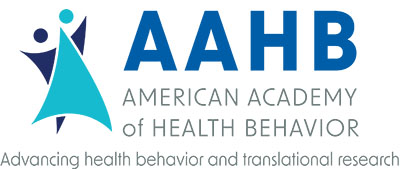

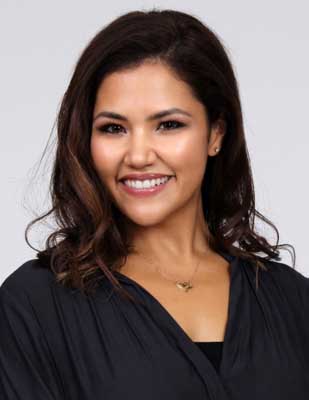 Misty Y. Pacheco, DrPH, MHA
Misty Y. Pacheco, DrPH, MHA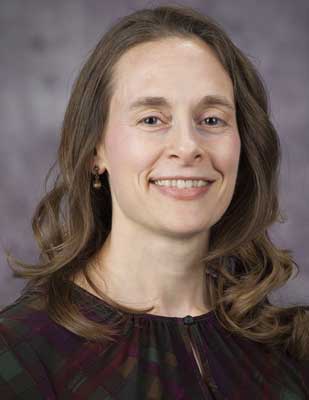 Katie M. Heinrich, PhD, FAAHB, FACSM
Katie M. Heinrich, PhD, FAAHB, FACSM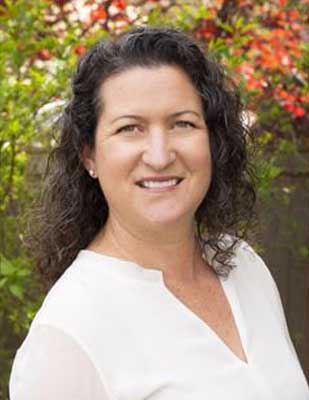 Elizabeth G. Klein, PhD
Elizabeth G. Klein, PhD